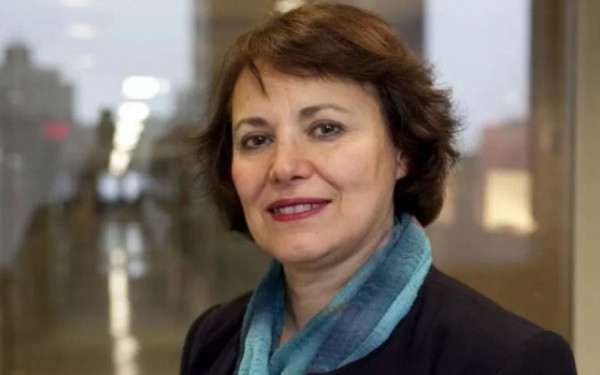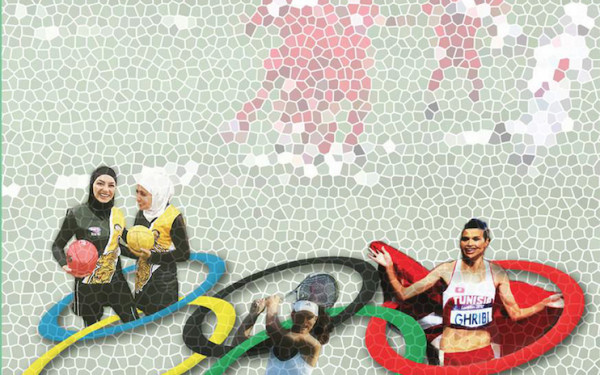Homa Hoodfar: A Global Effort
Academics Push for the Valued Concordia Scholar’s Release
“Please, send our colleague back to us.”
The sentiment resonated across the room during a press conference held at Concordia on Wednesday, Sept. 7, as Concordia associate professor Marc Lafrance paused, letting his point sink in.
This time, he addressed Iranian officials directly.
Academics across nations are pushing for Homa Hoodfar’s release from what they call an unjust imprisonment with more force than ever before. The former Concordia University professor has been held in solitary confinement for over 98 days, apart from a brief stint in hospital to treat her rare neurological condition.
Hoodfar went to Tehran, Iran in late February to visit family and conduct some research. Her apartment was raided in March, and her passport, laptop and research documents were confiscated.
On June 6, she was incarcerated under unknown charges. On June 24, news got out that she was being charged for “collaborating with hostile governments against national security and of propaganda against the state,” which a press release—issued at the conference—claimed to be fabricated.
She was also accused of “dabbling in feminism and security matters.”
The conference brought to light the great impact Hoodfar’s imprisonment had on her personal relationships, her fragile health, and the state of global academic freedom.
Hoodfar holds triple citizenship—Canadian, Iranian and Irish—which is what urged Canadian and Irish scholars to launch a cross-Atlantic protest, calling on all governments involved to “do everything they can to facilitate the speedy release of Prof. Hoodfar and to return her home safely to Montreal,” according to the release.
On the same day, Irish academics gathered outside the Iranian Embassy in Dublin. Hoodfar’s Irish citizenship marks the possibility for diplomatic contact with the Iranian government, something that has not been possible in Canada since the Harper government ceased diplomatic relations between countries in 2012.
“Of course the Irish government has a responsibility to help her and to enter into whatever negotiations it can with the Iranian government,” said Emer O’Toole, a professor of Irish studies at Concordia who was present at the conference. “Comparatively, Ireland has quite a good diplomatic relationship with Iran.”
There is a strong tradition of sociology, human rights and academia in Ireland, O’Toole added.
Hoodfar’s colleague and friend Marc Lafrance said hosting the conference, during which this cross-Atlantic protest was launched, is a good example of the university supporting the campaign to free Hoodfar.
“I think that this is precisely the sort of thing that we’re happy to see the university doing, and I anticipate that we will continue to be supported in this way,” he said.
The university has not made any significant promises to circulate any petitions or campaign information through its vast networks of students, alumni, and other contacts.
Concordia President Alan Shepard said the press conference had a big impact here in Montreal, and around the world.
“We’ve been supporting Homa herself as best we can. She’s far away, but we’re signaling our support for her,” Shepard added. “She’s a hugely respected and valued member of the community, we’d like to have her home.”
He added that much of what the university has done has been behind the scenes.
“The diplomacy that happens behind the scenes is often very powerful and very important,” he said. “Protests have their place, but there are other kinds of efforts as well.”
“The university will continue to support the efforts of Dr. Hoodfar’s colleagues to secure her release,” added Concordia spokesperson Chris Mota in an email on Monday, Sept. 12.
“What form that support should take could change but for the time being we believe letting her colleagues take the lead might be the most effective.”
Shepard’s first priority is not to do anything that would jeopardize Hoodfar’s safety, he said.
Hoodfar’s imprisonment has raised many questions about academic freedom worldwide—how could a scholar known to be balanced and evenhanded be subjected to this torture?
“The diplomacy that happens behind the scenes is often very powerful and very important. Protests have their place, but there are other kinds of efforts as well.” – Concordia President Alan Shepard
This fear is always in the back of academics’ minds when they travel to certain parts of the world, according to Kimberley Manning, principal of Concordia’s Simone de Beauvoir Institute, which has the oldest women’s studies program in Canada.
“I think this is an ongoing worry,” said Manning, who referenced that she has conducted academic research in the People’s Republic of China, at the conference. “I don’t think that it ever goes away, I think that her incarceration speaks to a growing concern—it’s always there.”
While this issue is relevant to many academics, for Hoodfar, travelling to Iran has been a constant part of her life for 30 years—she has family there, an apartment, and even citizenship.
“Because her citizenship in Canada and Ireland is not recognized by the Iranian government, she’s more vulnerable to this kind of false charge and incarceration,” Manning said. “We’ve seen this before as well in other contexts including China.”
Hoodfar’s Iranian identity was one of the many aspects of her personality she shared with the graduate students she still supervised at Concordia, including anthropology student Pamela Fillion.
During her time supervising Master’s students, Hoodfar helped prepare them for upcoming thesis presentations by holding a mock conference in her own home.
“She invited all of us to her home and baked us brunch and then a full Persian meal, and we got to each, one by one, go through and present our conference paper,” Fillion said.
“For me, that’s when I really connected with Homa.”
During her time in Hoodfar’s class, Fillion realized how much she could benefit and learn from Hoodfar, who she felt could help to further her critical thinking. Hoodfar has always been very involved and caring with her students, even while in the process of retiring, through her own ill health, and when her husband—who passed away in late 2014—was sick.
“Just thinking about the fact that this professor didn’t drop her students during this time, and still hasn’t, is kind of amazing.”
Hoodfar’s imprisonment has impacted her students and colleagues alike.
Lafrance, who works at Concordia’s Sociology and Anthropology Department, called Hoodfar an incredible mentor, as well as “like a family member” to him.
“I just want to express how deeply difficult this is, and the psychological toll that it’s taking on all of the members of the campaign really is immeasurable,” Lafrance said.
He added that Hoodfar being held hostage is a heinous injustice because she is a balanced, even-handed, rigorous and tireless scholar.
“Not only is she all of that, but she is just one of the most kind-hearted, giving, good people you will ever meet,” Lafrance said.
“Not only is she a mentor but she is a role model as a scholar and she is a role model as a human being. That somebody like her would be subjected to this absolutely brutal treatment is heartbreaking beyond words.”

web_900_675_90.jpg)




1web_600_375_90_s_c1.jpg)